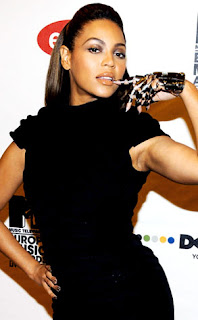 NEW YORK – Each time the Metropolitan Opera performed Wagner's "Tristan und Isolde" last season the big question was who would show up in the title roles. This season, both lead singers are new to their parts at the Met — and both went on as scheduled for the opening. The real news was in the pit.
NEW YORK – Each time the Metropolitan Opera performed Wagner's "Tristan und Isolde" last season the big question was who would show up in the title roles. This season, both lead singers are new to their parts at the Met — and both went on as scheduled for the opening. The real news was in the pit.Conductor Daniel Barenboim, making a long overdue company debut Friday night, drew inspired playing from the orchestra. Passion and yearning infused his expansive interpretation, along with a sense of fatalism. Rarely has the introduction to Act 3 sounded more desolate, especially the way the orchestra attacked the repeat of the opening phrase, barely shuddering back to life as Tristan lies hovering near death.
In fact, Barenboim made it clear at a roundtable discussion recently that he sees the work not as a tragic love story but as "an opera about death.
"And it is that death," he said, "the fear of death and the looking for death as the only possible way to solve the entanglement in which they find, this is, if you want, the locomotive, the motor of the opera."
There were many distinctive touches — the extra resonance of the strings when Isolde recalls looking into the eyes of the wounded Tristan and losing the will to kill him; the mocking trill in the orchestra when Tristan's companion Kurwenal announces their arrival at Cornwall; the ethereal final chords, which Barenboim drew out as if reluctant to let the last wisp of music end.
But opera depends on singers, and here the results were more variable. Swedish soprano Katarina Dalayman, promoted from the supporting role of Brangaene when this Dieter Dorn production was new in 1999, has a lovely voice, warm and supple. But it's too small for a dramatic role like Isolde and, despite Barenboim's efforts to hold back the flood, she often had trouble rising above the orchestra. Her high B's and C's were accurate and powerful but produced with evident effort.
As Tristan, German tenor Peter Seiffert was at his best in Act 2 and the first half of Act 3, fearlessly hurling out high notes. But whether battling a cold or just Wagner's daunting demands, Seiffert had trouble producing a clean sound in his lower register — and midway through Act 3, the problem extended to the rest of the voice. So it became something of a race as to whether Tristan would die before his voice gave out altogether. He made it to the end, but just barely.
Seiffert became the first Met singer to use an electronic earpiece, in his right ear, to pick up prompts from a coach backstage. Why he chose not to rely on the usual prompter in the on-stage box is unclear, but it didn't seem to impede his performance.
In supporting roles, base Rene Pape repeated his deeply human portrayal of the cuckolded King Marke, and drew the loudest ovations of the night. Baritone Gerd Grochowski made a successful debut as Kurwenal and mezzo Michelle DeYoung repeated her sympathetic Brangaene from last season, though both at times pressed their voices to the limit.
Those "Tristan" performances back in March were intended as a showcase for Deborah Voigt and Ben Heppner. But those leads took turns getting ill and managed only one, final performance together. This season Dalayman and Seiffert are scheduled to sing all six performances through Dec. 20.
Barenboim becomes the first person other than music director James Levine to conduct "Tristan" at the Met since Erich Leinsdorf in 1974. Barenboim, who conducted at Bayreuth for many years and led the Chicago Symphony for more than a decade, has said Levine invited him previously but his schedule hadn't permitted it. Now a vigorous 66, the one-time child prodigy pianist should have decades more of great conducting to offer the world — and the Met.
http://www.metopera.org



















